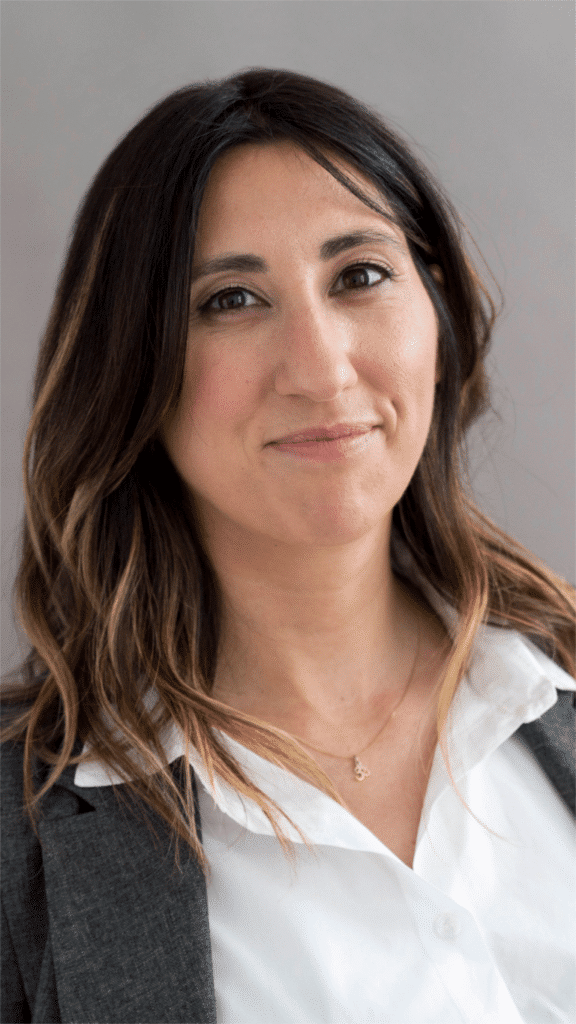Hi Verena. Can you tell us a bit about your professional activity?
Hello! I work as a full-time independent translator and proofreader, for translation agencies (like TradOnline) as well as for independent businesses and individuals. I mostly translate French to Spanish, but also English to Spanish.
What studies did you complete? Why did you choose to learn French?

Since I was very young, I always loved word play and languages. I would read a lot and as soon as I started learning English in school, I would amuse myself by translating the lyrics from songs I would listen to.
So it was natural for me to orient myself to linguistic studies. I was studying Arabic philology as well as French as a second language. Even though I wasn’t very good in French during High School (yes, it happens J), I had fallen in love with the French language and culture. Having grown up in Grenada, I was always drawn to Arabic music, culture, history and the Arabic language. I even made multiple trips to study Arabic in Tunisia, Egypt, and Syria.
This path I took during university gave me the will to use linguistic skills I had learned in my future career. Translation was thus an obvious choice!
I therefore completed studies in Translation and Interpretation at the University of Alicante, where I received a Master’s in Institutional Translation.
Today, I’m still continuing my education in languages and translation by taking classes or courses live or online.
How did you come to the idea of being an independent translator?
After completing studies in Arabic, I wasn’t sure what path to choose, since neither teaching nor research, typical options of linguistic studies, felt particularly suited for me. I donated my time as a translator/interpreter for NGOs (although I hadn’t yet completed real training, I thought I could still help a bit), so I decided to try to take the entrance exams for translation and interpretation. I did very well and started my education. At the time, I was working in a different sector, but after completing my studies, I didn’t have any doubts, I wanted to be a translator, because I had found a real vocation, a thrilling, dynamic profession that blends language and culture, where each project is a new challenge. At the same time, the economic situation in Spain following the crisis had pushed a lot of people, including me, to become independent workers. Private businesses at the time didn’t offer a lot of chances or guarantees at a professional level. I decided to become the master of my own destiny.
Who are your clients (activity sectors)?
Over the years, I’ve gained good expertise in a number of different sectors. First I was really interested in the legal sector; since I’m a sworn translator in French, I focused on this sector, taking complementary training, like my Master’s degree or private training. But the needs ofmy clients and my person interests allowed my to grow my activity sectors, including: e-mail marketing, patents, scientific and technical translation, cosmetics, and the nuclear sector.
I’ve also had the chance to translate subjects that I love and that interest me particularly, like fashion, medicine, health, sport, nutrition, well-being, etc.
In general, I’m naturally curious about everything around me, which allows me to bring real interest to (nearly) every subject that I have to translate. Of course, there are some domains that interest me more than others…
I also work as a conference or liaison interpreter, in Spain or abroad, for associations or private companies.
What does the translation process look like for you?
Currently, we receive most of our translation work through the Internet, directly in our inboxes or via our clients’ digital platforms, this is notably the case for translation agencies or clients with websites needing a lot of translation work to multiple languages.
After verifying that the text is within my realm of competencies, I prepare the dossier, using my management software, assigning a project number and saving the most important data (number of words, delivery date, client, and subject). Before I start the translation, I read the entire text, or a part of it if the text is very long, to get an idea of the possible difficulties I’ll run into during the translation and how much time I can allot to resolving them. Then, I “prepare” the text, using Computer-Assisted Translation tools (above all, not to be confused with machine translation), in which I upload the project, converting the document if the original file is in a different format than Word in order to properly translate it.
Then, I properly begin the translation, I translate while doing searches or making notes about terms I need to confirm with the client or to verify a specific term/expression. I like it when the client is reactive and invested in the translation, providing complementary information or clearing up ideas. It’s obviously not always possible, because sometimes the client isn’t the original author of the text or simply isn’t able to respond. But it’s true that it’s always better when you can communicate with the client. Understanding a text isn’t just about understanding the individual words, and the message or the translation’s suitability for the target audience isn’t always guaranteed without the client’s help!
After finishing the translation, I re-read it to verify everything was properly translated, that the sentences, the style, and the terminology are coherent and I run a spellcheck program (for us translators, there’s nothing worse than a little mistake or misspelled word, but it happens to everyone!). Another point I pay particular attention to is the page formatting of the translation, which I try to reproduce in accordance with the source document to the best of my ability.
Finally, if I have the time, I like to leave an entire day before the translation and a last proofread before delivering the document to re-read the text with a “fresh set of eyes”, as there is always something we find to improve on. But I also have to ensure I don’t invest a crazy amount of time because, as we translators often say: we never finish a translation, we only deliver it.
Have you noticed a change in the kinds of projects sent to you from your clients?
Yes and no. Right now, I’m trying to find new clients who fit better in my activity sectors, but that doesn’t depend entirely on me, rather on the needs of my clients. I have long-term clients for whom I translate basically the same type of documents every type, notable for private companies or target translation agencies. There are some translation agencies that offer more varied content, from legal documents to website consent or fashion… What I have witnessed is an increase in the number of translations for applications for portable devices, software, and digital sales or online training platforms.
What difficulties do you face in your job, but also, what do you appreciate the most?
What I have the most difficulty with is managing my time. As a translator’s workload varies and is unpredictable, we do everything we can to make the most of every workday. As an independent translator, I must take care of my project management, my invoicing, my website, my online presents, client prospection, and of course, the translation itself. It can be fairly restricting at times…
On the other hand, there is also the solitude, because most of us translators work from holme and have no one else to talk to, other than our family or pets ;-). That’s why, for more than a year, I’ve been renting a place in a co-working space; it allows me to meet professionals from other fields, get out of the house, and work in an office environment. I have the option of working from home when I want to, or going to my office.
Yet, we also have the possibility to work remotely from anywhere; I only need an outlet and an Internet connection! This allows me to stay in other countries, or simply to travel. I also like not having a boss, but only clients I need to answer to, and with whom I maintain a different relationship than that off boss-employee.
Lastly, as I said before, I like learning new things with each project, and the challenges that certain translations pose.
Do you think that translation is a career path with a bright future?
Yes, because we are living in a world that is more and more open internationally thanks to the Internet, and where the mobility of people, the transmission of knowledge and information in general is constant, translation in a growing need. The proof? The proliferation of translation and interpretation apps for smartphones and the investment in machine translation. It can become a challenge to or opportunity for translators, because there may be, in the future, more and more clients that look to this kind of translation, which will, in my opinion, always require a human eye to ensure the quality. Moreover, there are some domains for which machine translation will never suffice. I’m thinking of legal or sworn translations, where there are legal consequences that an error or mistranslation may entail, or literary translation, which is a product of the human spirit.
For us translators, it is clear that a machine can never completely replace us, but I think that it’s up to us to show the value of our work, and to improve and offer a higher quality product.
It’s clear that the need for translation is increasing, and in the future we’ll have to learn to work with advanced techniques.
What advice would you give to someone who is interested in a career in translation?
Translation is a profession that requires a vast field of knowledge, not only in your languages, but also in general culture, first, and then in the particular sector of each project. It is impossible to have a deep knowledge of every field; the world is too big!
I suggest they find a specialty and grow your knowledge and vocabulary in the languages in which you work. I’d recommend you find a specialty in a field that you are passionate about, or that is professionally interesting. After, other specialties will come! If you already have training in a particular field from a previous job, it would be a good idea to specialize in that sector that you already know.
When it comes to linguistic knowledge, it isn’t enough to be able to speak a foreign language perfectly, but to understand its nuances, how it works, the culture around it, and the various registers. Also, you can’t neglect the target language, as it’s the final product that counts! There’s no need to be a living dictionary, you just need to have the right resources.
Personally, I am still taking training courses whenever I have a bit of time, and taking language classes. I also listen to French radio every day, various podcasts, I read news in French, and I follow French media and personalities on social networks, which allows me to be up to date with what is happening with the use of the language.
Anything you want to add?
I think I’ve said enough! I can talk about translation and my profession for hours! I’d just like to invite people to make the most of their translation work, and to seek, and even require, quality in their texts.
Thanks for this interview and helping give us visibility! And, of course, thanks for the long-term collaboration that we enjoy, you are one of the best translation agencies I know!

